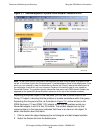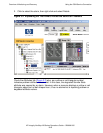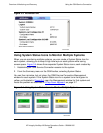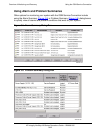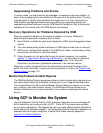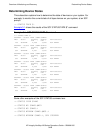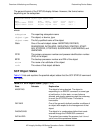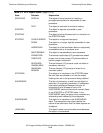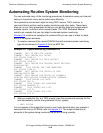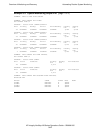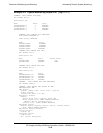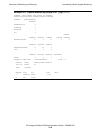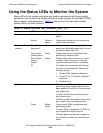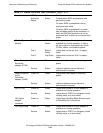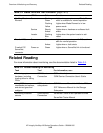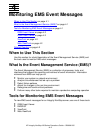
Overview of Monitoring and Recovery
HP Integrity NonStop NS-Series Operations Guide—529869-005
3-16
Automating Routine System Monitoring
Automating Routine System Monitoring
You can automate many of the monitoring procedures. Automation saves you time and
helps you to perform many routine tasks more efficiently.
Your operations environment might be using TACL macros, TACL routines, or
command files to perform routine system monitoring and other tasks. These items
allow you to run many procedures so that you can quickly determine system status,
produce reports, or perform other common tasks. The TACL Reference Manual
contains an example that you can adapt to automate system monitoring.
Example 3-2 contains an example of a command file you can use or adapt to check
many of the system elements:
1. To create a command file named SYSCHK that will automate system monitoring,
type the text shown in Example 3-2 into an EDIT file.
2. After you create this file, at a TACL prompt, type this command to execute the file
and automatically monitor many elements of your system:
> OBEY SYSCHK
For an example of the output that is sent to your home terminal when you execute a
command file such as SYSCHK, refer to Example 3-3. This output shows that all
elements of the system being monitored are up and running normally.
Example 3-2. System Monitoring Command File
COMMENT THIS IS THE FILE SYSCHK
COMMENT THIS CHECKS ALL DISKS:
SCF STATUS DISK $*
COMMENT THIS CHECKS ALL TAPE DRIVES:
SCF STATUS TAPE $*
COMMENT THIS CHECKS THE SPOOLER PRINT DEVICES:
SPOOLCOM DEV
COMMENT THIS CHECKS THE LINE HANDLERS:
SCF STATUS LINE $*
COMMENT THIS CHECKS THE STATUS OF TMF:
TMFCOM;STATUS TMF
COMMENT THIS CHECKS THE STATUS OF PATHWAY:
PATHCOM $ZVPT;STATUS PATHWAY;STATUS PATHMON
COMMENT THIS CHECKS ALL SACS:
SCF STATUS SAC $*
COMMENT THIS CHECKS ALL ADAPTERS
SCF STATUS ADAPTER $*
COMMENT THIS CHECKS ALL LIFS
SCF STATUS LIF $*
COMMENT THIS CHECKS ALL PIFS
SCF STATUS PIF $*



